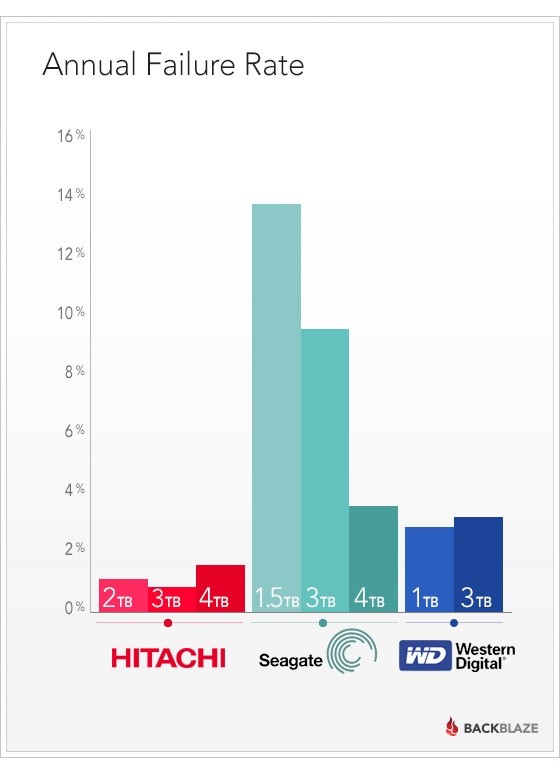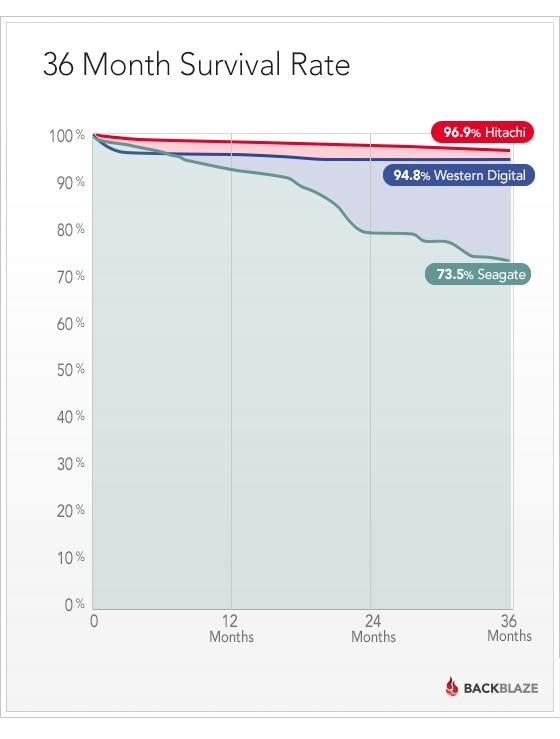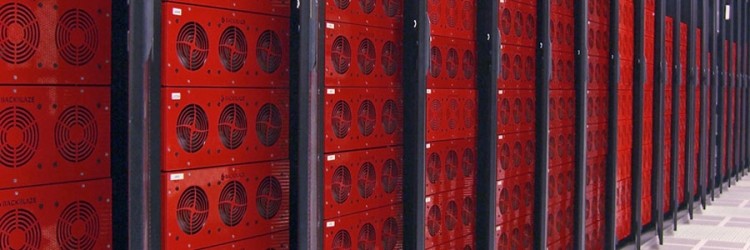Over the past few months, cloud storage provider Backblaze has been looking at statistics generated from the open-source Backblaze Storage Pods powering their business, and chronicling their findings in a series of blog posts. So far they shared their insights on how long a consumer hard drive should last and whether enterprise grade units really do last longer. Now they're back with reliability data on specific brands and models.
The data is based on more than 25,000 units in active service from 15 different consumer-grade hard drives from Seagate, Hitachi, and Western Digital. As noted by the company, their purchasing decisions are largely driven by price, but it's in their best interests to ensure that it buys reliable hard drives too, as it takes considerable time and effort to pull a failed drive, slot in a new one, and rebuild the RAID array.

For most of the last four years, Seagate and Hitachi have offered the best price-per-GB ratio, and also the starkest contrast when it comes to reliability. As seen in the graph above, Hitachi drives are by far the most reliable with less than a 2% failure rate, while Seagate fared the worst with an annual failure rate of 8-9%.
Things don't get any better for Seagate after three years with failure rates reaching over 25% while Hitachi sits at just over 3%. Meanwhile, Backblaze lists the annual failure rate of the Western Digital drives at around 3% and after three years of operation they fare just slightly worse than Hitachi at 5.2%.

In terms of specific models, the two best drives were the Hitachi GST Deskstar 5K3000 and Hitachi Deskstar 7K3000, with a 0.9% annual failure rate over more than two years. In fact, Backblaze claims if the price were right, they would be buying nothing but Hitachi drives. How's that for a seal of approval.
On the other side of the equation, the old 1.5TB Seagate Barracuda 7200 was the worst offender with a 25% annual failure rate, and even the newer 3TB model has a pretty high failure rate at 9.8% per year. Furthermore, Seagate's Barracuda LP 2TB and WD's Green 3TB proved to be so unreliable that they were left out of the picture. According to Backblaze, they "start accumulating errors as soon as they are put into production", which the company notes might have something to do the high vibration environment of their storage pods.
Lastly it should be noted that the company also uses Samsung and Toshiba hard drives, but Backblaze doesn't have a statistically significant number of them installed yet to generate reliable numbers.
Head over to Backblaze's website for a look at the complete report and hard drive models tested.
